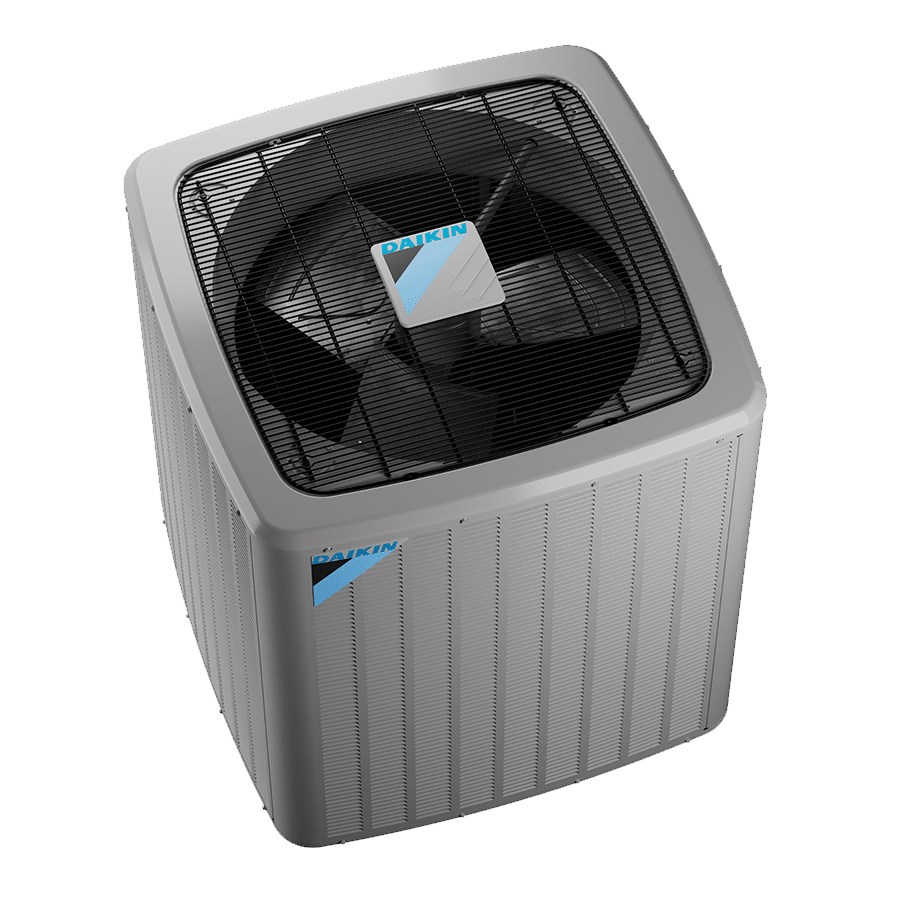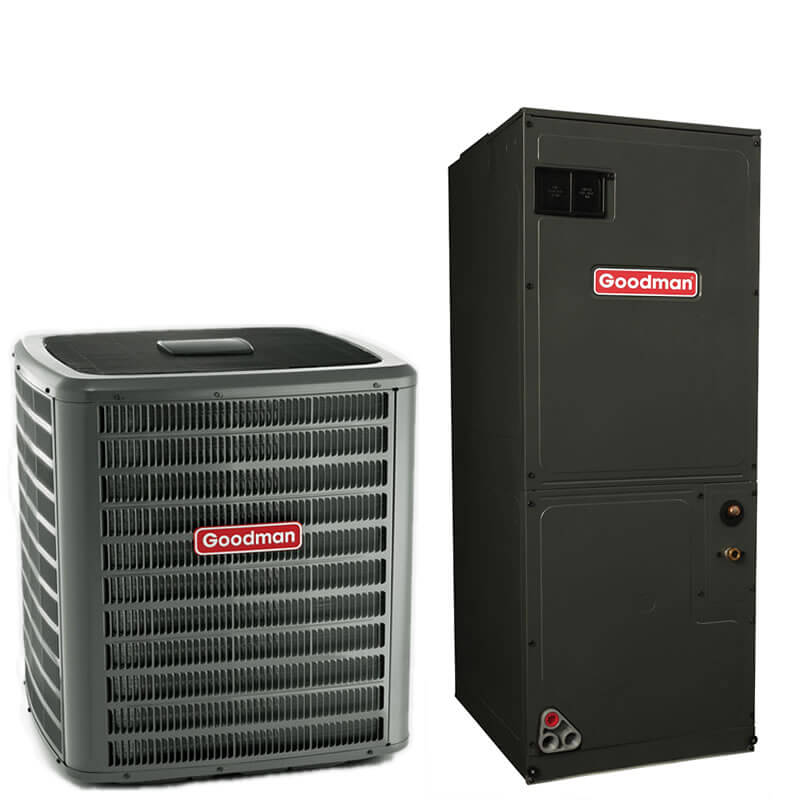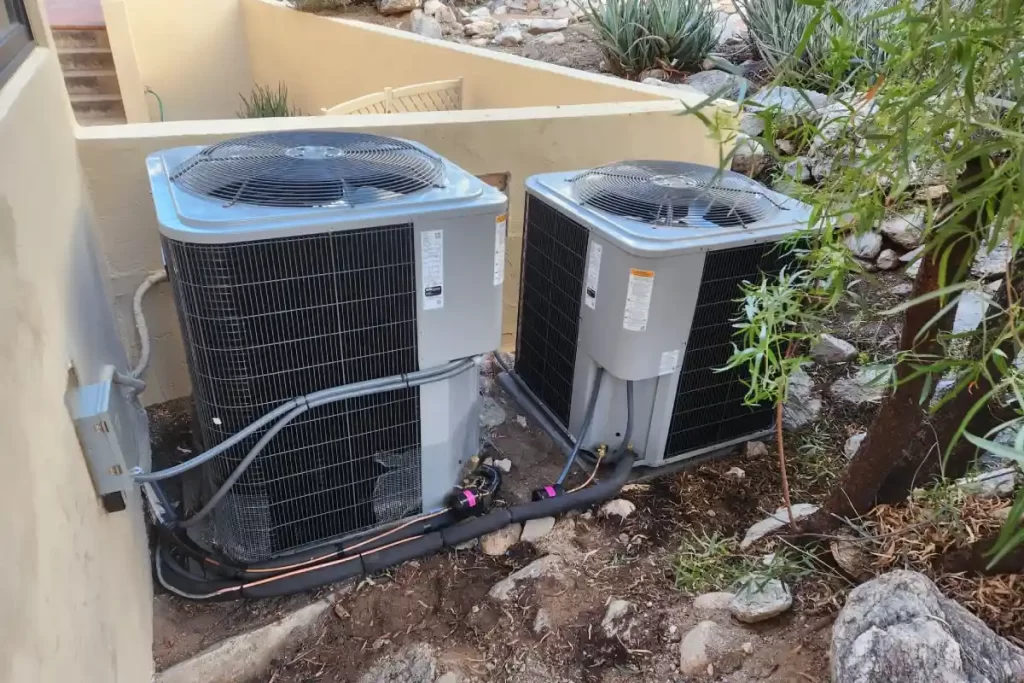Fantastic Info About Is Single-stage AC Good

Minimum Efficiency Standards Met By 15 To 17 SEER Single Stage Air
Decoding the World of AC
1. Understanding the Basics of Single-Stage AC
So, you're pondering the big question: "Is single-stage AC good?" Well, let's unpack that. Single-stage air conditioners are the OGs of the cooling world, the classic choice if you will. They operate at one speed — full blast. Think of it like a light switch; it's either on or off, no in-between. When it's hot, it cranks up to cool your home, and when the desired temperature is reached, it shuts off completely. Simple, right?
Now, this straightforward approach has its perks. Single-stage AC units tend to be more affordable upfront, which can be a huge win for budget-conscious homeowners. Installation and repairs are generally simpler too, meaning lower costs down the line. It's like driving an older car; mechanics know them inside and out. Plus, you don't have all those fancy bells and whistles that could potentially break down.
However, the "full blast or nothing" operation also means it can be less efficient than other types of AC. Imagine trying to sip your coffee slowly but only being able to chug it down. That's kind of what a single-stage AC does with your energy consumption. It might overshoot the temperature you want and then shut off, leading to temperature fluctuations and potentially higher energy bills, especially during milder weather when you don't need maximum cooling power.
Think of it this way: if you live in a place with consistently scorching summers and rarely need subtle temperature adjustments, a single-stage AC could be perfectly fine. But if your climate is more varied, with milder days sprinkled in, you might find it less comfortable and more expensive to run in the long run. It's all about matching the technology to your lifestyle and environment.

DX5SE Single Stage Air Conditioner Spring Home
Delving Deeper
2. Weighing the Advantages
Let's get down to brass tacks and really dig into the pros and cons. On the "yay" side, single-stage AC units shine in terms of initial cost. They're typically cheaper to buy than their multi-stage counterparts. This can be a major factor for homeowners on a tight budget, especially when unexpected HVAC replacements pop up (because those things always seem to happen at the worst possible time, right?).
Another advantage is simplicity. Single-stage systems have fewer components, making them easier and cheaper to repair. Finding a technician who knows how to fix them is also a breeze. It's like comparing a basic bicycle to a high-end mountain bike; both will get you from point A to point B, but the bicycle is much simpler to maintain.
Durability can also be a plus. Because they're less complex, single-stage units can sometimes last longer than more technologically advanced models. Less to go wrong, less that can go wrong, you see? They're the reliable workhorses of the AC world, plugging away season after season.
Ultimately, the best way to assess is single-stage AC good is for you, is to weigh these advantages against your specific needs and budget. Think about your climate, how often you use your AC, and your tolerance for temperature fluctuations. These factors will help you determine if the initial cost savings outweigh the potential long-term drawbacks.

3 Ton Goodman 15.2 SEER2 R32 Single Stage Air Conditioner Split System
The Flip Side
3. Considering the Disadvantages
Alright, now for the not-so-shiny side of the coin. The biggest downside of single-stage AC is its efficiency or, rather, its lack thereof. Because it only operates at one speed, it's not the most energy-efficient option, especially if you only need a little bit of cooling. Imagine trying to peel a single grape with a chainsaw — effective, but way overkill.
This on-or-off operation can also lead to temperature swings. Your home might feel too cold right after the AC kicks on and then gradually get warmer until it cycles on again. These fluctuations can be uncomfortable, especially for people sensitive to temperature changes. It's like trying to maintain a steady speed on a bicycle when you only have two gears: super-fast and super-slow.
Furthermore, single-stage AC units can be noisier than multi-stage models. Since they're always running at full power, they generate more noise. This can be a nuisance, especially if your outdoor unit is located near a bedroom window or a patio where you like to relax. Nobody wants their peaceful evening interrupted by the roar of an AC unit.
Finally, single-stage AC doesn't dehumidify as effectively as multi-stage systems. Because it cycles on and off, it doesn't run long enough to remove moisture from the air consistently. This can lead to a clammy feeling, even when the temperature is relatively comfortable. If you live in a humid climate, this can be a significant drawback.

Single Stage Vs Two AC Efficiency Compared
Exploring Alternatives
4. Stepping Up the Cooling Game
So, if single-stage AC isn't always the perfect solution, what are the alternatives? Enter multi-stage and variable-speed AC systems. These more advanced options offer greater control over your home's temperature and humidity, leading to improved comfort and energy efficiency. Think of them as the luxury cars of the cooling world — smoother ride, better fuel economy, and all the latest gadgets.
Multi-stage AC units, typically two-stage, have two cooling settings: high and low. This allows them to operate at a lower speed when less cooling is needed, saving energy and reducing temperature swings. It's like having a dimmer switch for your lights instead of just an on-or-off switch. More control, more comfort.
Variable-speed AC systems, also known as inverter ACs, take it a step further. They can adjust their cooling output in very small increments, matching the exact cooling needs of your home. This results in incredibly consistent temperatures, improved dehumidification, and significant energy savings. It's like having a car with cruise control that automatically adjusts its speed to maintain a constant distance from the car in front of you — smooth, efficient, and hassle-free.
While these advanced systems come with a higher upfront cost, the long-term benefits can outweigh the initial investment. If you're looking for maximum comfort, energy efficiency, and quiet operation, multi-stage or variable-speed AC might be the way to go. They're the modern, sophisticated solution for keeping your home cool and comfortable.

Single Stage Vs Two AC Units 2025 Guide
Making the Right Choice
5. Assessing Your Needs
Ultimately, deciding if a single-stage AC is "good" for you depends on your individual circumstances. Before you make a purchase, consider these key factors. First, think about your climate. If you live in a region with consistently hot summers and minimal temperature variations, a single-stage unit might be sufficient. But if your climate is more moderate, with fluctuating temperatures, a multi-stage or variable-speed system could be a better choice.
Next, consider your budget. Single-stage AC units are generally the most affordable upfront, but they might cost you more in the long run due to higher energy bills. Weigh the initial cost savings against the potential long-term expenses. Sometimes, spending a little more upfront can save you money in the long run, kind of like buying a well-made pair of shoes instead of a cheap pair that will fall apart in a few months.
Also, think about your comfort preferences. If you're sensitive to temperature swings or live in a humid climate, a multi-stage or variable-speed system will provide more consistent comfort and better dehumidification. If you prioritize consistent temperature, then this is worth to consider.
Finally, consult with an HVAC professional. They can assess your home's specific cooling needs and recommend the best type of AC unit for your situation. They can also provide information on energy efficiency ratings, installation costs, and potential rebates. It's always best to get expert advice before making a major purchase. After all, you wouldn't perform surgery on yourself, would you?

FAQ
6. Get the Answers You Need
Still scratching your head? Let's tackle some frequently asked questions about single-stage AC units:
Q: Are single-stage AC units really that inefficient?A: It depends. Compared to multi-stage and variable-speed systems, yes, they are less efficient. However, if you live in a consistently hot climate and don't need precise temperature control, the difference might not be significant.
Q: How long do single-stage AC units typically last?A: With proper maintenance, a single-stage AC unit can last 10-15 years. Regular maintenance, like cleaning the coils and changing the filters, can extend its lifespan.
Q: Is it worth upgrading from a single-stage to a multi-stage AC?A: It depends on your priorities. If you're looking for improved comfort, energy savings, and quieter operation, then yes, it could be worth the upgrade. However, weigh the upfront cost against the potential long-term benefits. Consider having an energy audit conducted.
Q: What size single-stage AC do I need?A: The appropriate size for your home depends on several factors, including square footage, insulation, climate, and window placement. A qualified HVAC technician can perform a load calculation to determine the correct size.